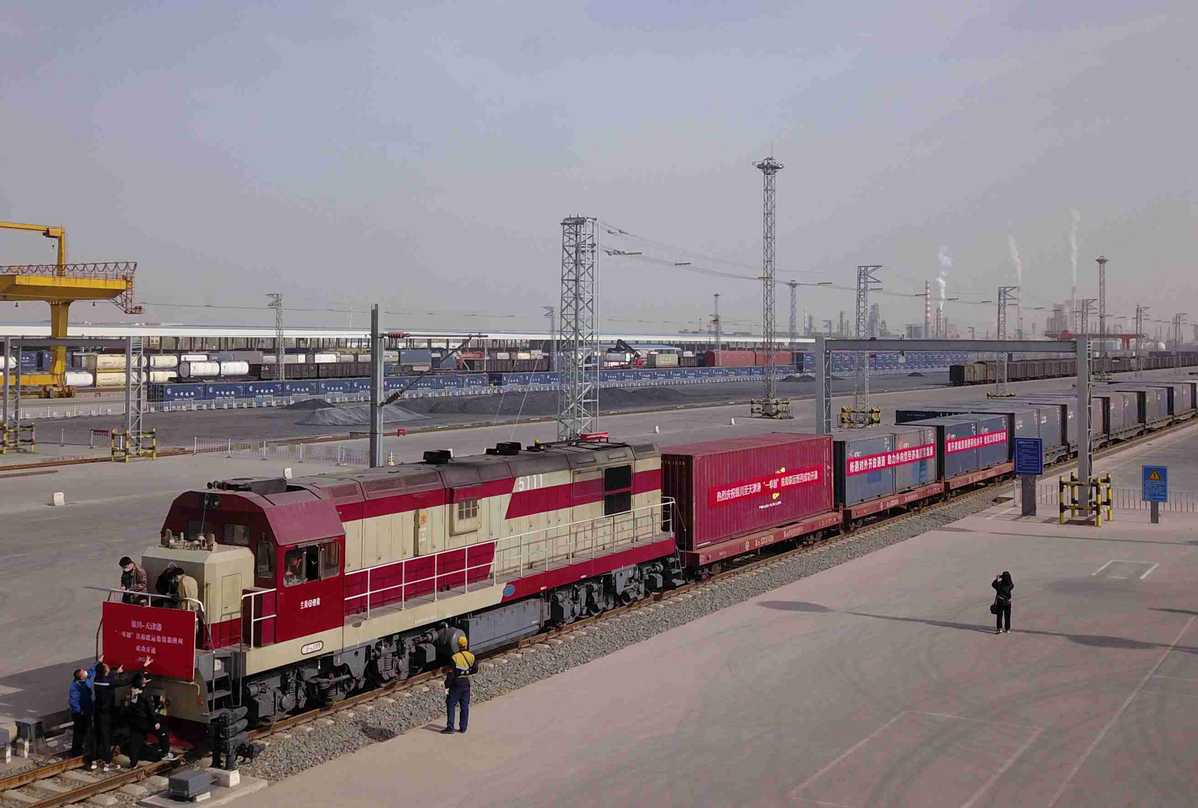Cross-border e-commerce brings opportunities to inland sellers


Every day, Yan Xinhua sees off dozens of containers to the port of Tianjin, some 1,200 kilometers away, where the goods are directly shipped to overseas markets.
The goods are cleared by Customs authorities in Yinchuan, the capital of northwestern China's Ningxia Hui autonomous region, and then loaded into containers entrusted to Yan's company by international shippers.
"I started this direct logistics service to export Ningxia products to overseas markets less than two years ago and now send 3,000 containers each year," said the 40-year-old chairman of a logistics company.
Located at Yinchuan International Road and the Rail Logistic Port on the outskirts of Yinchuan, Yan's company is benefiting from the export-oriented policy in recent years.
The export-oriented policy is greatly pushing forward overseas trade in Ningxia, which imported and exported 21.4 billion yuan ($3 billion) worth of goods from January to October this year, a 57.6 percent year-on-year increase, said official statistics.
According to statistics provided by Yinchuan Customs, among the exports, about 30 percent are those sold with bonded logistics and cross-border e-commerce.
"The bonded logistics system in Ningxia offers a 'one-stamp' clearance service with Customs to send goods abroad by sea freight and railway without any transit," said Yan.
The policy could help improve Customs clearance efficiency, save half the transport time and reduce 30 percent of transport costs, according to Yan.
With pro-export policies in Customs clearance and taxes, e-commerce is playing a more important role in cross-border transactions, bringing more business opportunities.
Located in a geographical backwater, Ningxia has wasted no time in catching up with the wave of development in the e-commerce industry by setting up a comprehensive cross-border e-commerce pilot zone, including five cross-border e-commerce industrial parks and a bonded zone cross-border e-commerce incubation base.
According to official statistics from China Customs, China's cross-border e-commerce volume increased nearly 10 times in five years to 1.92 trillion yuan last year.
"We receive orders online and send goods directly to customers from transit warehouses at home and abroad," said Yang Wanlong, general manager of the incubation base, which hires 30 staff workers and collaborates with 60 self-employed people all in their 20s.
Selling a great variety of China-made goods, enterprises in the city of Yinchuan have rented five warehouses totaling over 60,000 square meters in countries including the United States, Kazakhstan and Singapore.
Riding the cross-border e-commerce boom, the city currently has 475 enterprises engaging in cross-border e-commerce businesses, which have registered over 40 brands in countries including the US, Japan and the Republic of Korea.
Their goods range from furniture and auto parts to cosplay costumes, with major markets in North and South America, Southeast Asia, the Middle East and Europe.
The bonded zone in Yinchuan is also establishing duty-free shops for imported goods to tap the local market for foreign businesses.
"We are buying foreign goods 7 percent to 20 percent cheaper here with good quality," said a man who bought Lego toys for his son at a cross-border O2O shop in the bonded zone near Yinchuan airport.
Xinhua







